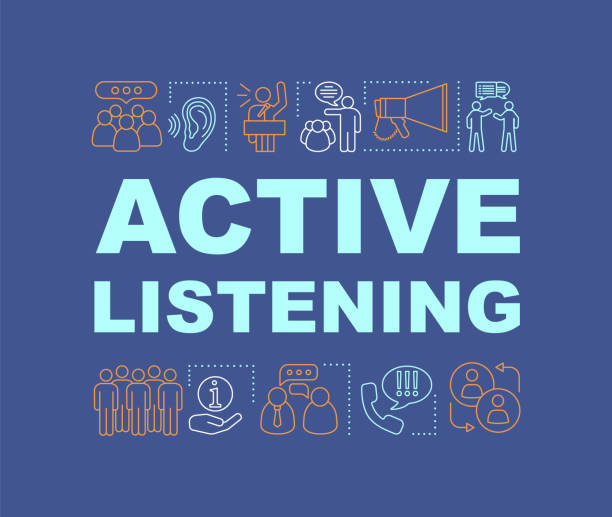A highly influential Leadership Skill
I had recently written an article about the most undervalued leadership skills and something that came up as one of the comments on the post was – “Listening Skills”. Listening, I agree, is often undervalued and I believe that listening is actually a master skill in itself. In this smart world that we live in, people seem to be talking at each other and not really listening. Think about all the emails, texts, social media posts, and more than anything the WhatsApp messages you receive daily and how overwhelmed you feel with this information.
‘Active listening’ is the term coined by psychologists, Carl Rogers and Richard Farson in 1957. Active listening, according to them “requires that we get inside the speaker, that we grasp from his point of view, just what it is he is communicating to us. More than that, we must convey to the speaker that we are seeing things from his point of view.”
Listen, not hear!
To listen and to hear are two different things. Active listening is when the listener is fully aware and focused on what is being said and is not just passively hearing what the other person is trying to share.
In active listening, you:
- First, acquire information.
- You listen to understand people/situations.
- And then, respond to it.
Here, you are not interrupting but you are summarizing, repeating what you hear back, and also picking up on body language.
You are consciously deciding to listen carefully and also to try and understand what the speaker is trying to share without judging them. This is often easier said than done, I know! But is clearly an important skill.
Overcoming cognitive biases
Most people have cognitive biases. A cognitive bias is nothing but an organized thought process that is caused by the inclination of the human brain to simplify information processing through a filter of personal experience and preferences. This is why often we only hear what we want to hear. We are most often than not unable to comprehend other people’s perspectives. Cognitive biases may make us believe that products and services marketed by good-looking people/stars are better and also that a confident political candidate is more competent.
I often saw during the recent elections in Karnataka, people stuck to their belief systems and were unwilling to listen to any opinions contrary to their biases. Irrespective of which political party they were aligned with, the behaviour was similar. No one was listening to the other’s perspectives. This happens a lot with the constant barrage of information that is being thrown at us through various social media, especially WhatsApp. Most people just reinforce what they believe is right with the post that most suit them. If you stop and listen for a minute to others’ perspectives, you may actually be able to analyse a situation more objectively.
We tend to shut ourselves in our own bubble and refuse to listen to others perspectives, especially when it comes to our nationalistic ideals. We may actually learn a lot when we listen carefully to what other countries are saying about us.
Learning to Listen
For many, listening is not something that comes naturally. The good thing is that it is a skill that one can acquire no matter what stage in your career you are at. Time and patience can teach you to listen and with a bit of a push, you can look at things with a better perspective.
For Leaders, active listening has several benefits including a boost in employee morale, a reduction in employee turnover, enhanced business communication, conflict resolution, an open environment, and more. It takes attention to not only the big picture but also the smaller details to be able to grow. Active listening is what ensures the latter. So next time, don’t just hear…but listen.



